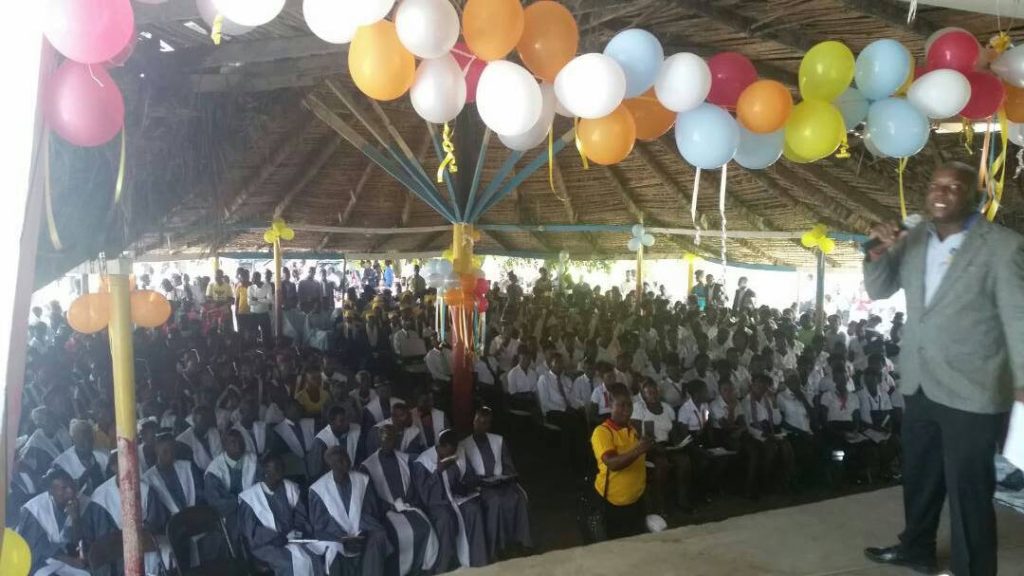At the annual UNC conference which attracts the great and the good in the WASH sector annually in North Carolina for a week of sharing experience in the WASH Sector, the most interesting people I met were two ordinary non academics who were to me the most extraordinary people in the conference…. Jude Francois and Marie were volunteer social workers from Haiti who had started a grass roots movement to assist their community.
They had been brought to this august gathering by Jason Rosenfeld, a senior lecturer at Texas University, who had spent some time as a project officer with Africa AHEAD in Zimbabwe and South Africa. He being a CHC enthusiast was presenting a poster on his own CHC research in Haiti and had encouraged them to come and share their first-hand experience of a home grown Community Health Club movement which it seemed had a life of its own.
I asked Marie just one question:
What do you like about the Community Health Clubs?

and she wrote me this reply:
“What is good in almost all the clubs is the team spirit. As the coordinators work together, in their supervision they advise the clubs of different activities that they can do, to keep the club alive after they finished the level II that is Reproductive Health. The clubs learnt and created plenty of activities by themselves with the facilitators and coordinators. For example, some of them learnt how to make white wine with corn by collecting money between members to buy ingredients, and after the committee and the facilitator in coordination to the supervisors went from club to club, sharing knowledge, experiences. From now almost of the clubs in the city know how to make wine, and some of them have started a little business, because some of the members make wine to sell to others, as friends, family and so one when they have a specific party or when they celebrate an anniversary, etc.
Other clubs make different things like paints, liquids for washing, shower, or shampoo. They organize themselves to have everything they need and then they show it to other people. They sell to friends to get some money. Some CHC members also do drafts like making sandals. All of this is done in great solidarity. The best thing of all is the Micro credit initiative. Every time the clubs wanted to realize an activity, lack of money is the big issue, because those communities are vulnerable. So for an example: in one of the most vulnerable neighborhoods which was created after the earthquake called “Canaan” we have a very strong club called Jerusalem Canaan. They started a micro credit program by collecting $2 per members just from those who were capable of contributing, and now they have in institution that can serve many people living in the locality.
Those clubs are getting close to their mission, and we could say that they are in good way because between the clubs there is something magic that is the solidarity, they become a family, and they are applying their slogan by action “The business of the sheep is the business of the goat”.
We can see it! Not one of them sees and thinks about themselves only but they think and act as a team. They try to apply everything they learned from the club in their own community, we can see the changes in their household, in their action. They take pleasure into the clubs, they participate actively, and they are conscientious about their social situation and work hard to get out to poverty. They are working to prevent diseases, and cholera epidemics by cleaning the community and teaching to other people about managing environment. They are conscientious that the government will not come to resolve their problem if they don’t put hand together and do their part So each one has to participate if they want to have a better life.
Now they are confident that it is time to change their behavior, to show that they are capable to do the basic hygiene, and everything will come next. They only have to start instead of waiting all their life for others to come and treat their water for them. That is how we show people what they can do. They know they are poor, they don’t have everything they are hoping for, but now they are capable of taking care of their life by preventing diseases.”
Thank you Marie and Jude for bringing this case study to our attention.

